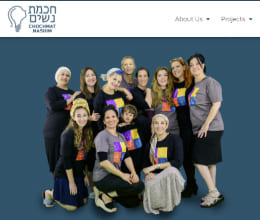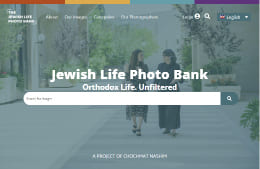The paradox of being Israeli is life under both extreme uncertainty and reassuring predictability.
We don’t know what’s happening on our borders. We don’t know when the next war is coming. We don’t know the minds of our enemies or the date of the next wave of stabbings. But, we know exactly when to build our succahs, when to buy matzahs, and when rain won’t fall for months at a time.
Similarly, we live in a strange place where we are both looking ahead, to the next holiday, the next meal to be cooked, and constantly reliving our past. We talk about 3,000 year-old events and recall our slavery in Egypt while eating the latest kosher haute cuisine, posted on the hottest Instagram accounts.
Holiday preparation is frenetic. Despite knowing exactly when they are coming. Shopping, cooking, cleaning, praying, fasting, talking, educating…
Buses and highway signs say Shana Tovah in September not January. Companies across the country hold mini celebrations to toast the New Year and give gifts to employees. Apples and honey, pomegranates and fish-heads abound, as do sales on housewares and holiday dresses.
After Rosh Hashanah comes preparation for Yom Kippur and all this month, theSlichot petitionary prayers have been held at the Western Wall — thousands pour into the plaza, crying out in one voice for the forgiveness and mercy of God in Heaven. It is a sight to behold and symphony to the ear.
The wailing prayers of the Sephardi Jews have a beauty and emotional component that ensures that even if one doesn’t know the words, the passion vibrates through the soul. And then the world stops.
On Yom Kippur there is no television broadcast. No radio or newspapers. Cars and buses are parked in their spots and the highways are free for bikers. The air-space and airport are closed. Pollution levels drop drastically and the world breathes.
More than 60 per cent of Jewish Israelis fast and many spend the day in prayer and contemplation of life, death and the meaning of both.
Nearly as soon as the fast has ended, the sound of hammers, the clang of poles and the shlepping of palm branches can be heard. Families begin building their succahs — the temporary booths built in honour of our time in the desert, when God surrounded us with clouds for protection during the day, and a fire to lead us at night.
Industrious people have ordered their holiday meat already. Those of us who forgot that there are no fresh chickens for the duration of the week-long holiday, dash to the market, praying to grab the last packages — frozen, if we must. Ashkenazi, Ethiopian, Sephardi Jews all pile food into their carts and ask the Muslim guys behind the butcher counter for the best cuts of meat for their holiday dishes.
Moroccan mothers, notorious for not letting their children help in the kitchen, have bags of hot peppers and piles of fresh herbs. Ashkenazim like me stand in awe as we wait in ten-cart-deep checkout lines and beg them to share the recipes they are making for their nine children and 14 grandchildren (so far). Some of us threaten to invade their meals and we are assured with a smile that we are welcome.
Unlike in many parts of the diaspora, whether because of the temperature or antisemitism, where even the most observant Jews are unlikely to be found sleeping in a succah, many Jews in Israel do sleep in their succahs.
Even those who don’t, have family over and eat meals in the succah surrounded by the walls they built and the decorations their children made. Families make plans for the intermediate days of the holiday, trying to think of ideas that don’t cost too much, are good for all ages and won’t be packed with others trying to do the same. (Thank God, Israel has miles of beautiful coastline.)
It’s strange to live in a long gone past and an uncertain present while we hope for the future. Yet, people in Israel are not afraid. We celebrate life — shopping carts full, guests invited for meals, visiting with family and travelling the country.
Uncertainty isn’t a new feeling for Jews. But uncertainty in one’s own homeland, where Christmas ornaments are succah decorations, where Saturday is Shabbat, and where a Jewish army protects and defends its people, means uncertainty isn’t what it used to be.
And, after two thousand years of not having a Jewish homeland, it is the absolute best way to live.
Originally published in The Jewish Chronicle


